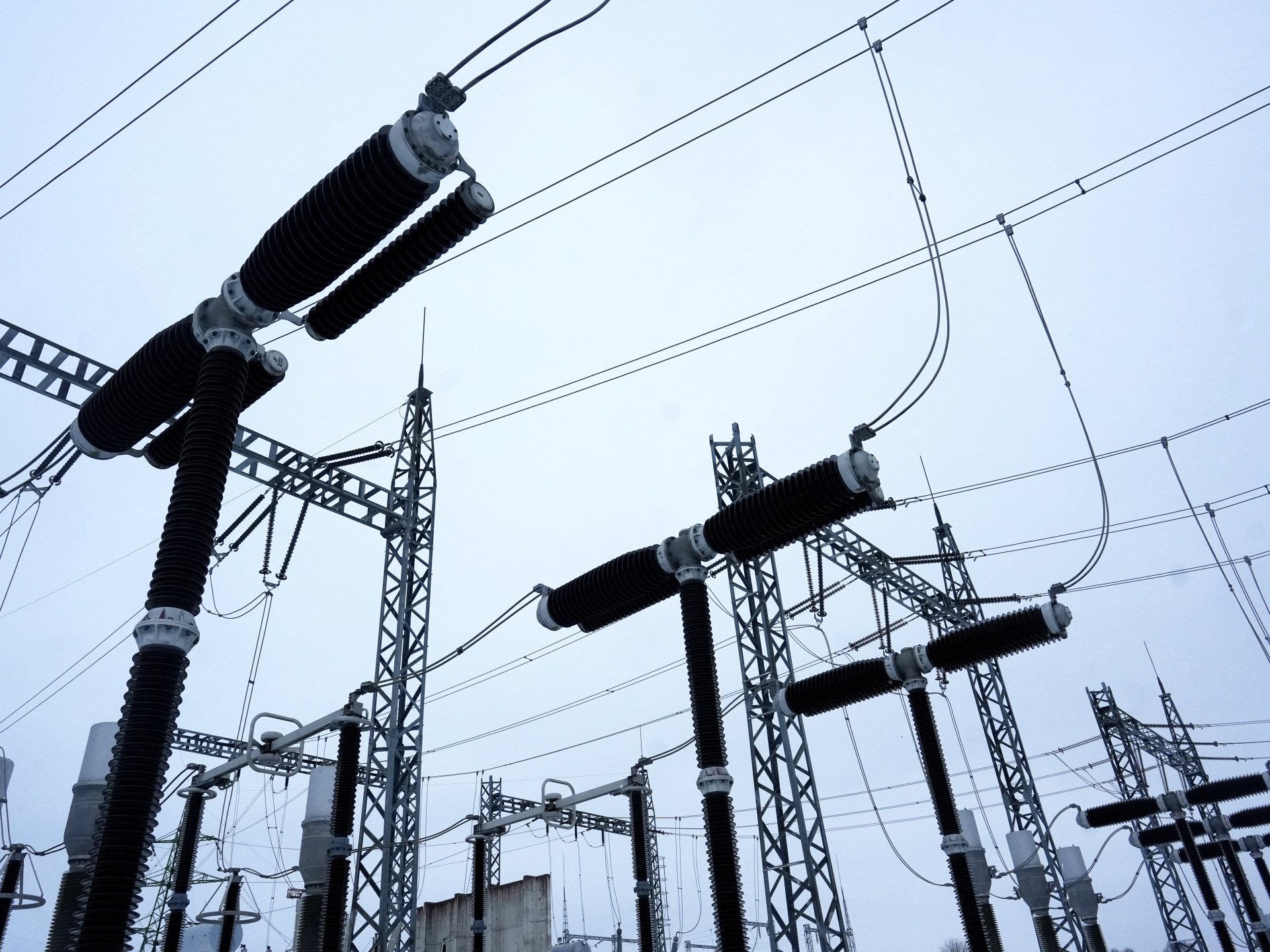After officials shut off the transmission lines connecting the Soviet-era grid to the rest of Europe, the Baltic nations of Estonia, Latvia, and Lithuania have now officially cut off the flow of electricity between themselves and Russia.
More than three decades after the Soviet Union’s collapse, the Baltics’ final energy ties to oil- and gas-rich Russia were ended. For the three countries, as well as the rest of Europe, the move was steeped in geopolitical and symbolic significance.
What information is necessary about the Baltic nations’ ending ties to Russia in terms of electricity:
What happened?
All remaining transmission lines between the Baltic nations and Russia, Belarus, and the Russian exclave of Kaliningrad, which are wedged between Poland, Lithuania, and the Baltic Sea, were individually shut off on Saturday.
The Baltic Power System operated independently for 24 hours after pulling out of the Soviet-era grid before combining with European energy networks on Sunday afternoon.
After disconnecting from the IPS/UPS network, the Baltic nations cut cross-border high-voltage transmission lines in eastern Latvia, some 100 metres from the Russian border, handing out pieces of chopped wire to enthusiastic bystanders as keepsakes.
According to experts, maintaining a constant power supply requires a stable grid frequency, which is more readily available over time in a vastly synchronized region like Russia or continental Europe, than what the Baltics can do on their own.
Why did they stop using Russian electricity, and why did they do it?
The Soviet Union’s electricity infrastructure was transferred to the Baltic states in the 1950s, and the country’s BRELL network continued to exist in the 1990s.
Their power grids remained physically connected to Russia and Belarus despite the country’s withdrawal from Russian energy after the Ukrainian invasion of 2022.
Their factories and crucial facilities were dependent on Russia for stable power, as a result, their electricity was still being controlled by Moscow.
How much electricity did these states receive from Russia?
Before 2022, the Baltic states imported about 10% of their electricity from Russia, according to a report from Free Policy Briefs, a publication affiliated with the Forum for Research on Eastern Europe and Emerging Economies (FREE Network).
Where will the Baltic states now purchase their electricity?
Through a number of connections with Finland, Sweden, and Poland, the power system and the European energy networks have been linked.
What does it mean for the Baltic states?
The European Commission and the Baltic states praised the electric cutback.
“The Baltic energy system is finally in our hands, we are in full control”, Lithuania’s Energy Minister Zygimantas Vaiciunass said.
The country’s president, Gitanas Nauseda, told The Associated Press news agency that it was a “historic moment, marking the end of a long journey for Lithuania, Latvia and Estonia”.
“From now on, we have achieved full energy independence. The president declared that the political era is over, and that he has come to an end.
The Baltic states’ inclusion in the EU’s electric grid was welcomed.
“Russia can no longer use energy as a tool of blackmail”, said Kaja Kallas, EU high representative for foreign affairs and security policy. Kallas was Estonia’s first female prime minister, from 2021 to 2024.
Lithuania, Latvia, and Estonia will permanently disconnect from Russia’s power grid tomorrow.
Energy is no longer a tool for Russian blackmail.
Freedom and European cohesion are now at stake.
What does it mean for Russia?
The decoupling means Russia’s Kaliningrad exclave, located between Lithuania, Poland and the Baltic Sea, is cut off from Russia’s main grid — it must now maintain its power system alone.
The Kremlin stated that it has implemented all necessary steps to ensure Kaliningrad’s electricity system runs smoothly and reliably, including the construction of several gas-fired power plants.
“Electricity lines are being severnned between Belarus and Russia. These power lines that connect you to hostile neighbors will no longer exist, according to European Commission President Ursula von der Leyen.
What are the concerns going forward?
Authorities have warned of potential risks, including sabotage, cyberattacks and disinformation campaigns.
“Various short-term risks are possible, such as kinetic operations against critical infrastructure, cyberattacks and disinformation campaigns”, Lithuania’s state security department told the AFP news agency.
The , Baltic , Sea region is , on high alert , following power cable, telecom and gas pipeline outages between the , Baltics and Sweden or Finland. Following Russia’s invasion of Ukraine, it was thought that ships dragging anchors along the seabed would have caused all of these events.
Russia has denied any involvement.
“The Baltic Sea’s recent incidents involving undersea infrastructure cause a lot of concern. And a call for resolute action”, said Lithuanian President Nausda.
After an undersea power link from Finland to Estonia was damaged in December, Poland and the Baltics immediately deployed navy assets, elite police units, and helicopters to monitor the region, and Lithuania’s military immediately began exercises to safeguard the overland connection to Poland.
Any further damage to links, according to analysts, could cause power prices in the Baltics and the   to rise to levels they haven’t since the Ukraine invasion, when energy prices have been soar.
PSE, Poland’s operator of the power grid, announced that it would patrol the connection with Lithuania using drones and helicopters.
Source: Aljazeera

Leave a Reply